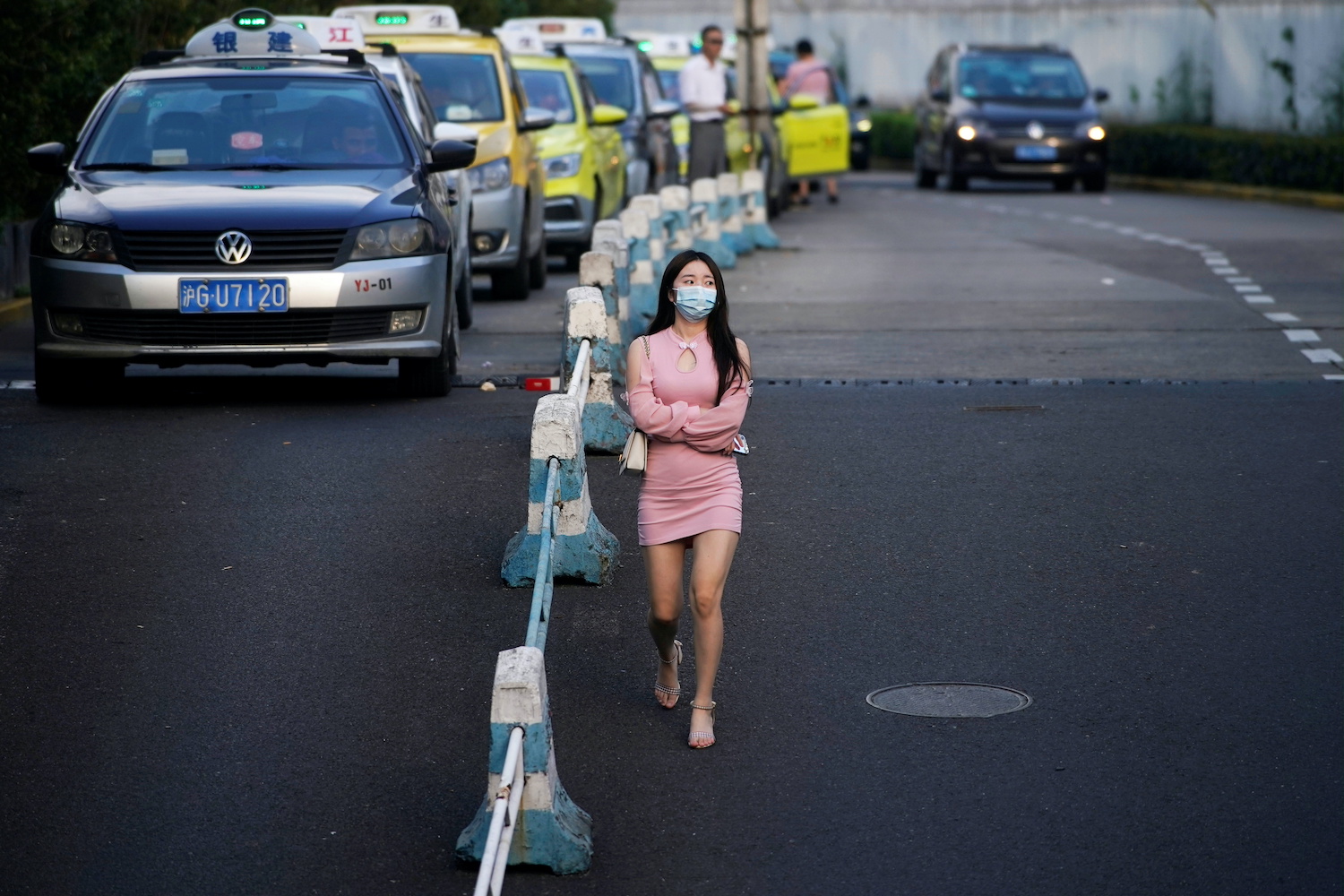China’s services sector contracted for the first time since the Covid-19 pandemic erupted in February last year as outbreaks of the Delta variant weighed on growth, raising the likelihood of policy easing.
The non-manufacturing PMI in August tumbled to 47.5, well down from July’s 53.3, according to the National Bureau of Statistics. The official manufacturing Purchasing Manager’s Index (PMI) fell to 50.1 in August from 50.4 in July, holding just above the 50-point mark that separates growth from contraction.
Momentum in the world’s second-biggest economy also was undermined by high raw material prices, slowing exports, tighter measures to tame hot property prices and a campaign to reduce carbon emissions.
On the upside, there are signs China may have largely contained the latest coronavirus outbreaks, with zero locally transmitted cases reported on August 30, for the third day in a row.
“We expect a notable growth slowdown and Beijing to ramp up its policy easing,” said Lu Ting, chief China economist at Nomura Holdings in Hong Kong. “The worse-than-expected August PMIs add conviction to our view that the growth slowdown in the second half could be quite notable.”
Stocks recovered after initial falls with the Shanghai Composite Index ending the day up 0.45% and Hong Kong’s Hang Seng Index climbing 1.3%.
Worst Hit
The catering, transportation, accommodation and entertainment industries were the most affected, said the NBS’s Zhao Qinghe.
Construction activity accelerated to the fastest pace since March. The manufacturing PMI showed demand slipped sharply, with new orders contracting and a gauge for new export orders falling to 46.7, the lowest in over a year. Factories also laid-off workers at the same pace as July.
Measures to tame the Delta variant outbreaks are helping restore economic activity. Meishan terminal at China’s Ningbo port resumed operations in late August after shutting down for two weeks due to a Covid-19 case. The closure caused logjams at ports across the country’s coastal regions and further strained global supply chains amid a resurgence of consumer spending and a shortage of container vessels.
While most of the weakness should reverse as Covid-19 restrictions are relaxed, tight credit conditions and weakening foreign demand will continue to weigh on China’s economy, Julian Evans-Pritchard, senior China economist at Capital Economics, said.
Economists expect the central bank to deliver a further cut to the amount of cash banks must hold as reserves later this year to support growth, on top of last month’s cut which released around 1 trillion yuan ($6.47 trillion) in long-term liquidity into the economy.
“It seems the government is still aiming the end of this year to launch fiscal stimulus,” Zhang Zhiwei , chief economist at Pinpoint Asset Management, said. “This means growth will likely slow further in the coming months.”
Higher raw material prices, especially of metals and semiconductors, have also pressured profits. Earnings at China’s industrial firms in July slowed for the fifth straight month. The official August composite PMI, which includes both manufacturing and services activity, fell to 48.9 from July’s 52.4.
“This epidemic in multiple provinces and locations was a fairly big shock to the services industry, which is still in recovery,” Zhao of the NBS, said. Industry continued to come off the boil as supply chain bottlenecks worsened and demand softened, Evans-Pritchard, said.
Nomura’s Lu said he expects Beijing to maintain its policy combination of ‘targeted tightening’ for a few sectors, especially the property sector and high-polluting industries while complementing that with “universal easing for the rest of the economy.”
• Kevin Hamlin and Reuters
ALSO SEE:
China Media Call Xi’s Regulatory Storm a “Profound Revolution’’
























